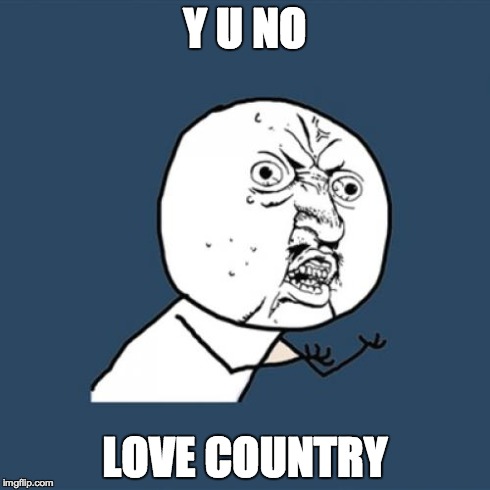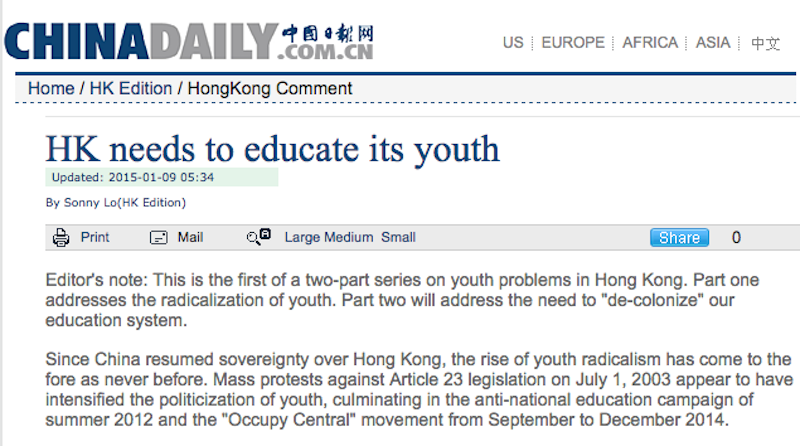An opinion piece in China Daily says that Hong Kong “needs to educate its youth”, an insult of the greatest magnitude considering that schooling is virtually the city’s sole focus for its children.
Sonny Lo, a professor at the Hong Kong Institute of Education, says that “youth radicalism” has been on the rise since the 1997 handover. In fact, “all signs” point to the “Taiwanization” of politics in Hong Kong.
He cites the incident in June last year when a group of around 50 protesters stormed the LegCo building, comparing it to when Taiwanese students occupied Taipei’s equivalent building for several days in April 2014.
Since the piece is written in propagandist mumbo jumbo, allow us to rework Lo’s words into a more readable, no-bullshit format.
What he says:
An overwhelming majority of textbook writers have failed to balance personal rights with obligations to society and the nation. Under the circumstances, many young people have a lopsided view of their rights and neglect their obligations.
What he means:
You know that the state’s interests come before yours, right? You should acknowledge the wisdom behind state-imposed limits on your family size, accept that a free press and uncensored internet would have disastrous consequences, and give up your right to assemble.
What he says:
To compound the problem, netizens in Hong Kong usually obtain news about the mainland from the Internet, which tends to be critical of the central government and biased against the establishment in its portrayal of political and social events in Hong Kong.
What he means:
I just learned the word “netizen”! Besides the obvious fact that “netizens” by definition use the internet, can you believe they read the news on the World Wide Web, where anyone and everyone can read and write what they want to? Outrageous!
What he says:
Sadly, [… the proposed national education…] was criticized by some parents and politicians as “brainwashing” with sinister overtones. This needless politicization of the issue eventually forced the government to shelve the introduction of national education in September 2012, thereby perpetuating our young people’s distorted view of their country.
What he means:

If you don’t love your country yet, you’re not trying hard enough. I also prefer the term “mind cleansing”.
What he says:
[…] ironically, while Chinese History in secondary schools was marginalized, Liberal Studies has become a compulsory subject. Its pedagogy routinely utilises media reports in support of the two sides of an argument – a controversial diametrically antagonistic approach to learning without a deeper understanding of the country through in-depth knowledge and research.
What he means:
Serious, why are you arguing with me. Stop it. I don’t like it.
What he says:
In short, Hong Kong failed in its bid to introduce “national education” primarily because of inadequate consultation and a failure to win over the stakeholders. Because of this, some parents harboring alarmist views of the exercise, together with other habitually anti-Beijing politicians and media and in cahoots with extremist student activists, were able to derail plans for its introduction in 2012.
What he means:
I hate you, Joshua Wong.
What he says:
[“Hongkongism”] has been the source of conflict between [young people] and some visiting mainland tourists. It is an incendiary situation in which both the government and school authorities, with the help of all responsible citizens, should do their utmost to ensure that “Hongkongism” does not spread and deteriorate into some sort of destructive schism.
What he means:
Oppression is a fun activity for the whole family!
We look forward to the second part of Lo’s series, which will be on the need to “de-colonize” Hong Kong’s education system.




